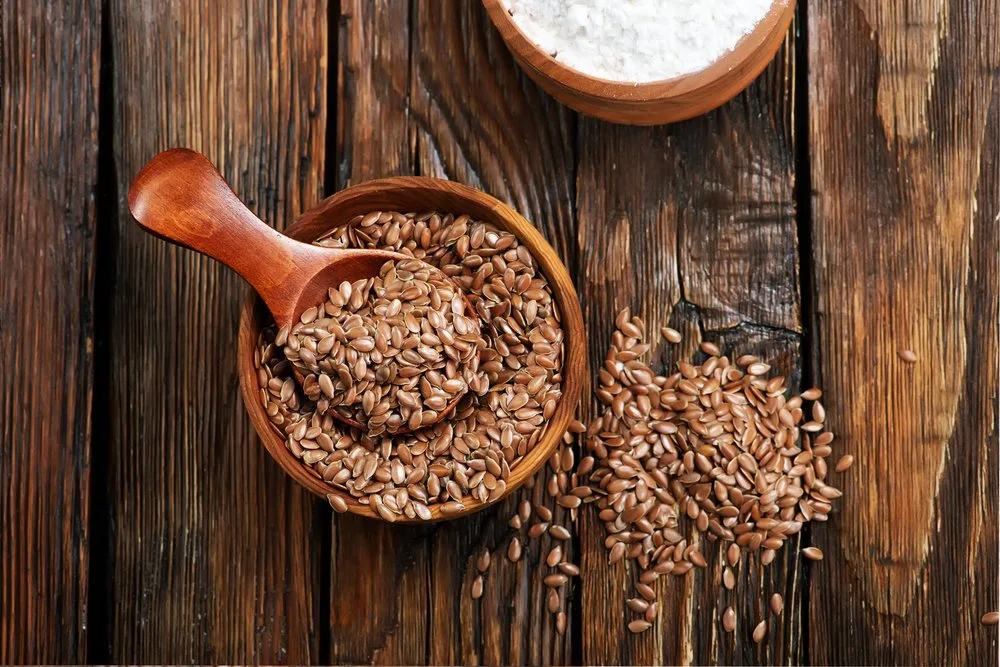Flaxseeds are seeds that are rich in fibre, antioxidants, omega-3, and protein. This rich nutrient composition allows for the seeds to help in lowering the risk of cancer, diabetes, and heart disease. Flaxseeds also contain ALA, which are fatty acids that can only be obtained from food sources. This fatty acid has been linked to improved heart health as well as a lowered risk of stroke. Furthermore, if meat isn’t included in your diet, flaxseeds are a great source of plant-based protein.
Flaxseeds should be consumed in ground form as it enables the body to better absorb nutrients. Also, whole flaxseeds can often go undigested in the body. Read on to discover the benefits of these high-fibre seeds.
Benefits of Flaxseeds
1. Lowers cancer risk
With their nutritional density, studies have shown that flaxseeds help in the protection against different types of cancer by disrupting the growth of cancer cells. They are extremely rich in lignans – containing up to 800 times more lignans than other foods. According to studies, these lignans help in preventing the development of tumors. A study published in Applied Physiology, Nutrition and Metabolism, saw that women who eat flaxseeds have a lower risk of developing breast cancer. Another study showed how the consumption of these seeds halted the development of prostate cancer tumors. In helping to protect against cancer, many believe in eating plant-based diets to reduce the risk of certain cancers.
2. Improving heart health and lowering cholesterol
Another health benefit of flaxseeds is their ability to boost heart health. A high level of LDL cholesterol are a risk factor for heart disease. Studies have shown that consuming flaxseeds can lead to a reduction in the number of LDL particles. They also contain phytosterols, which are molecules which can help lower the levels of LDL cholesterol in the body by preventing the absorption of cholesterol in the intestine.

The soluble and insoluble fibre content in flaxseeds also helps to lower cholesterol. The insoluble fibre traps fat and cholesterol in the digestive system, preventing it from being absorbed. The soluble fibre then traps the bile – which consists of cholesterol in the gallbladder – before excreting it through the digestive system. This then forces the body to make more by using up excess cholesterol in the blood which then lowers cholesterol. Studies have also revealed that flaxseeds can help to lower blood pressure.
3. Improves digestive health
Flaxseeds are packed with fibre, with studies showing how they can encourage normal bowel movements and boost digestive health. They also contain two forms of fibre – soluble and insoluble. Soluble fibre dissolves in water and helps to prevent diarrhea by increasing the bulk of the stool. Insoluble fibre does not dissolve in water; instead it absorbs it. This allows for more water to bind to the stools, increasing their bulk which results in softer stools. Essentially, insoluble fibre acts as a laxative, preventing constipation.
4. Flaxseeds Help With Weight Loss
Finally, these seeds can help keep you feeling fuller for longer, which can help you in managing your weight. Soluble fibre slows down digestion in the stomach, encouraging the feeling of satiation. It also helps to reduce hunger cravings.
As mentioned, when consuming flaxseeds, it’s best to consume the ground ones as they’re easier to digest. In the case that you only have access to whole seeds – you can grind them in a coffee grinder. They can be added to muffins, cookies or sprinkled on cereal, oatmeal and yogurt. It’s best to consume about two to three tablespoons of ground flaxseeds a day. In the case that you prefer flaxseed oil, enjoy one to two teaspoons a day. Also, remember to store it in a cool, dark place and to use it at lower temperatures when cooking.



![women [longevity live]](https://longevitylive.com/wp-content/uploads/2020/01/photo-of-women-walking-down-the-street-1116984-100x100.jpg)










